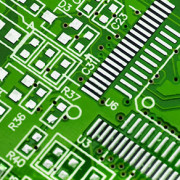2014 Visioning Activities

Brain Workshop
/Computer science and brain science share deep intellectual roots – after all, computer science sprang out Alan Turing’s musings about the brain in the spring of 1936. Today, understanding the structure and function of the human brain is one of the greatest scientific challenges of our generation.

Uncertainty in Computation Workshop
/Modern science, technology, and politics are all permeated by data that comes from people, measurements, or computational processes. However, data is often incomplete, corrupt, or lacking in sufficient accuracy and precision. While concern for these uncertainties would seem essential to rational decision making, explicit consideration of uncertainty is rarely part of the computational and decision making pipeline. Now is the appropriate time to hold a discussion about future research directions related to the modeling of uncertainty in computations and the ways in which the uncertainty inherent in many computational processes can be communicated to those tasked with making decisions based on such data.

Aging In Place
/This workshop will bring together needed interdisciplinary expertise, assess the state of the science at the human, medical, and technology levels, and articulate a research vision for a systems engineering approach to the development of technologies and solutions to support the home management of persons with significant chronic diseases and their family care providers.

Human Computation Roadmap Summit
/Human Computation entails the design and analysis of information processing systems in which humans participate as computational elements. This visioning activity seeks community input to map a path from interdisciplinary research to human computation applications with the greatest societal benefit and impact.

CRA/CCC Workshop on Extreme Scale Design Automation
/Design automation tools have been an enabling force in the computing revolution. Beginning in the 1970s, rapid advances have allowed semiconductor chips to evolve from a handful of transistors to modern processors and systems with billions devices.
This is part of a series of workshops - view the series page.






